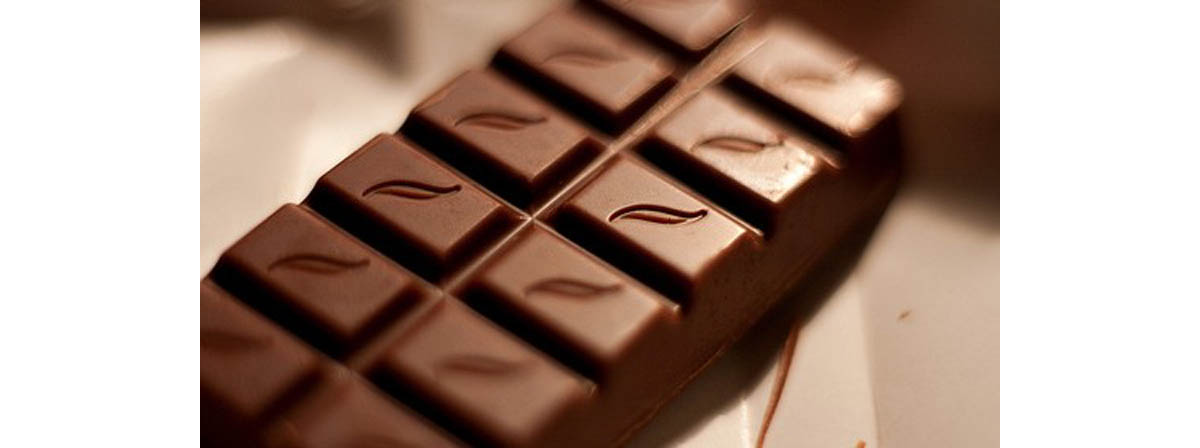Table of Contents
Yes it does.
The commercially available chocolate that lines the candy aisle of your grocery store today is rich in milk and sugar, along with plenty of other fattening compounds. In addition to which, the processing treatments which turn the flavinoid-rich cacao beans into chocolate decrease some of those great antioxidants.

The chocolate that we eat gets processed a great deal before it reaches us in those cute little packets. The beans are fermented and roasted and ground down to a powder. Sugars and fats and milk are all added before the chocolate finally hits our mouths. These, in effect, largely minimize the healthful properties.
In order to benefit from these amazing effects, the chocolate which is eaten must be dark. The darker it is, the better it is for you. Dark chocolate, even up to 90%, is now available to purchase from many retail outlets.
So the secret is to eat as dark a chocolate as you can, in the purest form. But even so, it is quite a calorie dense food. Pure dark chocolate can contain as many calories as milk or white. More than one or two squares should not be consumed on a daily basis, otherwise the waistline will start to groan.
So what is the real deal?
Researchers have found health benefits when pure cocoa was taken as a drink. It is certainly rich in antioxidants which mop up free radicals from the blood stream and may have an effect on lowering blood pressure. It may even be beneficial against heart disease, cardiovascular problems and strokes, but much more research needs to be conducted on larger numbers of people. There are even some reports of a benefit against cancer, although these have yet to be confirmed.
While chocolate has been shown to contain naturally occurring fats, these are stearic acid and oleic acid, which do not have any effect on cholesterol levels in the blood stream.
Also, the quality of chocolate varies a great deal. Cheaper chocolate can be up to 50 percent sugar. Or it can be bulked out with the dreaded corn syrup and bad fats. In general, the better quality the chocolate, even though it may have the same number of calories as the cheaper kind, will benefit you more. So try to buy the best quality from reputable companies if you love your chocolate.
Remember…
Stick to a healthy balanced diet. Try to get healthy flavinoids and polyphenols from natural plant sources such as berries and grapes. Also, cut down on saturated, ‘bad’ fats.
Factor in a regular exercise routine to keep all the body parts working as well as they should.
As long all these things are maintained then the good news is that adding a square or two of delicious melt-in-the-mouth dark chocolate will not hurt. You can keep giving chocolate hearts to your true love on Valentine’s day and what is more, now you can tell them that it might just be good for them.
- Mauro Serafini, Rossana Bugianesi, Giuseppe Maiani, Silvia Valtuena, Simone De Santis & Alan Crozier. Plasma antioxidants from chocolate, Nature 424, 1013 (28 August 2003) | doi:10.1038/4241013a Photo courtesy of anjuli_ayer by Flickr : www.flickr.com/photos/anjuli_ayer/2949375321/
- Photo courtesy of Magic Madzik by Flickr : www.flickr.com/photos/cefeida/4376382115/

